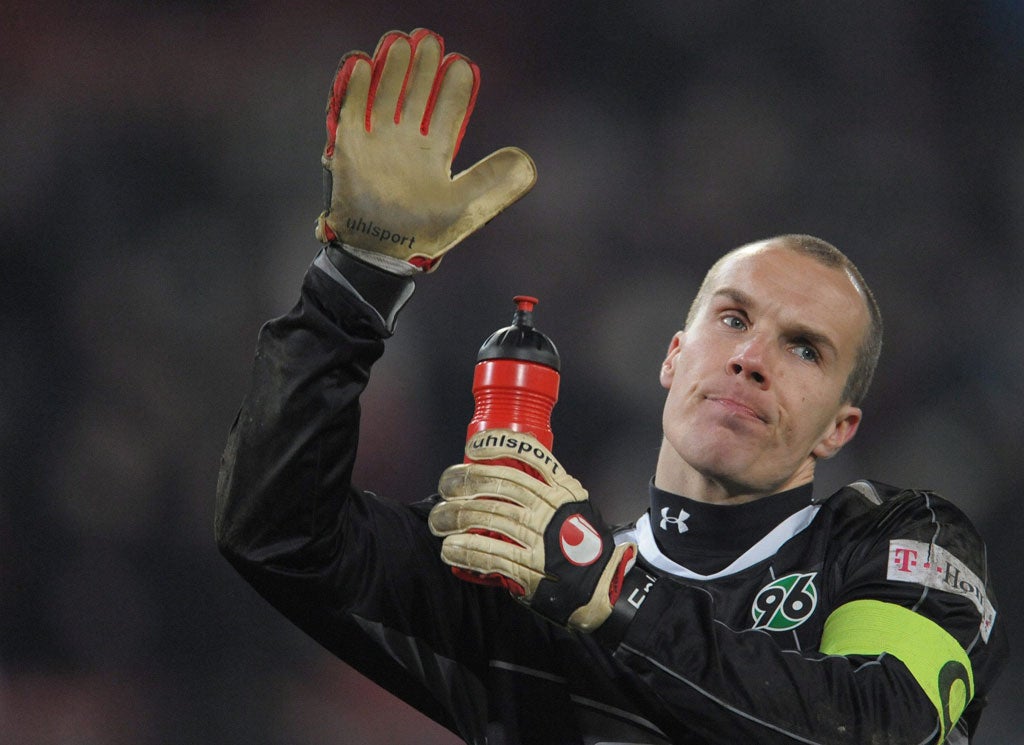A Life Too Short: The Tragedy of Robert Enke, By Ronald Reng, trans. Shaun Whiteside

When Robert Enke killed himself in 2009, Germany was wracked with uncomprehending grief. A goalkeeper for the national football team, he appeared to have played his way through mid-career doldrums to become one of the most able players in his position, in line to represent his country at the 2010 World Cup. He had matured, too, into a fine young man.
In common with more professional athletes than we like to think, however, Enke had spent long periods skilfully hiding the depression that ultimately made him take his own life. Not long ago the idea of a leading sportsperson admitting to psychological or emotional difficulties was unthinkable, but in the last few years sportsmen such as the England cricketers Marcus Trescothick and Michael Yardy have admitted to finding the pressures too great.
Enke's story is told by his close friend Ronald Reng, a journalist with whom he had been working on a book. They had met during Enke's stint at Barcelona, where the stress of trying to become No 1 at one of the biggest clubs in world football provoked his first serious depression.
The goalie's status as the exposed last line of defence introduces a particular burden. Victor Valdes, Enke's Barcelona team-mate – and goalkeeping rival - talks of "a special sort of suffering". And from early on, Enke suffered. He felt crippling anxiety as a 16-year-old thrown in with the 18-year-olds. Then, as a rookie professional, he was told to abandon the old German style - sticking close to goal and relying on spectacular saves - in favour of the new trend of goalkeeper-as-sweeper, pressing up the field almost as an extra outfield defender. Literally and symbolically, he was out of his comfort zone.
A psychiatrist told him he had never learned to cope with making mistakes – "a mistake wasn't the whole game, a game was never the whole season, a season wasn't a career. A career isn't a life". But he was rarely able to adopt that guiding principle. After his first game for Fenerbahce in Turkey went badly wrong, he wrote in his diary: "I'm afraid of people's eyes. I just want to live without anxiety and nerves."
This isn't really a sports book at all: its story is universal. Even if professional sport brings particular pressures, Enke would probably have fallen ill whatever his career. You know the book is not going to end well: no salvation, no redemption. Each example of Enke's character as a good, generous, loving man simply piles on the sense of waste. "If you could just have my head for half an hour, you'd know why I go mad," he told his wife. Reng does his best to put us inside Robert Enke's head: it's a moving, if grim, experience.
Join our commenting forum
Join thought-provoking conversations, follow other Independent readers and see their replies
Comments